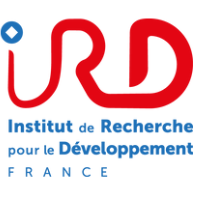Four organizations are involved in the management of the ClerVolc consortium.
Université Clermont Auvergne
Université Clermont Auvergne is the coordinator of ClerVolc for legal and administrative purposes. It has nine constituent units: five faculties, two schools of engineering, one university institute of technology, and one university institute for teacher training. It also has four doctoral schools, and 31 research laboratories. It includes 15,000 students, about 950 full-time faculty members and 620 technical and administrative staff. The university offers a wide range of academic and professionally oriented degree courses, with 40 majors at the bachelors level, 60 majors at the masters level, and 30 majors at the doctoral level in Science and Technology, Human and Social Sciences, Arts, Languages and Literature, International Business, and Sports Science. Postgraduate research is organized through four doctoral schools, which currently have about 600 PhD students in Fundamental Sciences, Engineering Sciences, Arts, Human and Social Sciences and Life and Health Sciences. The ClerVolc project brings together five laboratories of the university in the fundamental sciences (Earth sciences, mathematics, computing, particle physics, physical meteorology) and the Clermont-Ferrand Earth Physics Observatory.
Web site: http://www.uca.fr
Centre National de la Recherche Scientifique
 The CNRS is a government-funded research organisation under the administrative authority of the French Ministry of Research. As the largest fundamental research organisation in Europe, the CNRS carries out research in all fields of knowledge, through its seven institutes. Among these institutes, the Institut National des Sciences de l’Univers (INSU) develops and coordinates research in astronomy, earth sciences, ocean sciences, atmospheric and space sciences and, since 2002, environmental studies in association with other CNRS institutes. Issues related to volcanic processes, hazards and risk are addressed by INSU at national and international levels.
The CNRS is a government-funded research organisation under the administrative authority of the French Ministry of Research. As the largest fundamental research organisation in Europe, the CNRS carries out research in all fields of knowledge, through its seven institutes. Among these institutes, the Institut National des Sciences de l’Univers (INSU) develops and coordinates research in astronomy, earth sciences, ocean sciences, atmospheric and space sciences and, since 2002, environmental studies in association with other CNRS institutes. Issues related to volcanic processes, hazards and risk are addressed by INSU at national and international levels.
Web site: http://www.insu.cnrs.fr
Institut de Recherche pour le Développement
The IRD is a French public research institute under the joint authority of the French ministries for research and overseas development. It carries out research, consultancy and capacity-building activities in order to assist the economic, social and cultural development of southern hemisphere countries. The IRD establishes scientific partnerships with local scientists in those countries in order to address the societal impacts of naturals hazards, and to aid the economical development of target countries in ways that respect local culture. The IRD and its French and foreign partners place emphasis on multidisciplinary approaches combining earth and planetary sciences, engineering sciences and social sciences in order to characterize the hazards, vulnerabilities and risks associated with natural phenomena, as well as to develop strategies for disaster reduction. The IRD focusses its work on natural hazards on two main geographical areas : the central Andes and the southwestern Pacific region.
Web site: http://www.ird.fr/
Centre international de recherche 4 (I-SITE CAP20-25)
International Research Centre 4 of the CAP20-25 is a world-class centre for disaster risk reduction research and capacity development, created in Clermont-Ferrand. The overall ambition is to place at the forefront of research on disaster risk reduction (especially volcanic hazards) that hinder sustainable development, especially in developing countries.
This innovative centre develops and coordinates research and outreach activities with the objectives of (i) producing and disseminating multidisciplinary research on disaster risk reduction, (ii) contributing to disaster risk reduction capacity development, and (iii) facilitating knowledge exchange among academic researchers, policy makers and other stakeholders.
Web site: http://cap2025.fr



